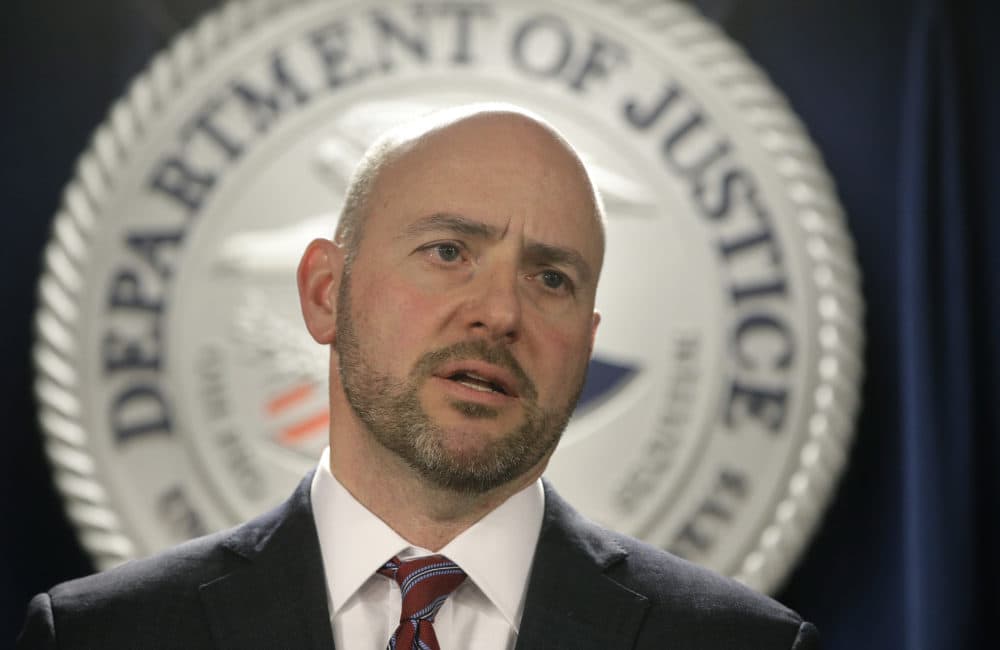Advertisement
Commentary
The Other Atrocity In The College Admissions Scandal: Bad Parenting
Resume
This is, among many other things, a story of terrible parenting.
That much is clear from reading the federal affidavit outlining “Operation Varsity Blues,” the investigation into a shockingly brazen scheme of college admissions fraud. It’s a window into the world of gold-plated, wood-paneled helicoptering — and the logical extension of a world where you can’t say “no” to a precious child.
The document clocks in at more than 200 pages and unfolds like a CW miniseries, where the villains wear designer clothes and rub their hands in glee over their dastardly schemes. The main character is William Singer, publicly a college coach, secretly a criminal mastermind who scammed the college system on multiple levels — and later, flipped as a witness for the government, luring his clients into admitting the depth of their fraud on recorded telephone lines.
The parents are the supporting players: ultra-wealthy actors, entrepreneurs and business executives, many of them able to spend hundreds of thousands of dollars on the promise that their kids would get admitted to their dream schools. (In one case, a family struggled with a bribery payment plan.) Some of them allegedly conspired with their kids, encouraging them to fake disabilities, sit with proctors who helped them fill out standardized tests or write college essays that claimed nonexistent sports prowess (“For years I have spent three-four hours a day grinding out on and off court workouts with the hopes of becoming successful enough to play college tennis especially at Georgetown,” one student wrote. That was a lie.) These parents delivered shameless lessons to their elite children: The rules don’t apply to you.

But many of the defendants also allegedly lied to their own kids — letting their underachievers imagine that their test scores suddenly rose dramatically, or that their less-than-stellar GPAs were enough to get them into their chosen schools. Sometimes, the stress of it all made them pour out their hearts to Singer, on recorded lines. If there’s one thing they could be honest about, it was the fear of upsetting their kids.
“Is there a way to do it in a way that he doesn’t know that happened?” asked one father, discussing the process of getting fake ACT scores. Another father wanted to protect his daughter’s reputation: “To be honest, I’m not worried about the moral issue here. I’m worried about the, if she’s caught doing that, you know, she’s finished.”
One mother complained about the “weird family dynamics” in her household: Her older daughter was happy to cheat on tests and pass herself off as a beach volleyball player to get into USC. But as she prepared to set up a similar scheme for her younger daughter, she discovered that the girl wanted to improve her ACT scores on her own. “She’s smart, she’s going to figure this out,” the mother complained. “She already thinks I’m up to, like, no good.”
These parents delivered shameless lessons to their elite children: The rules don’t apply to you.
And a dentistry professor, who passed his daughter off as a volleyball recruit so she could get into USC, said he feared his daughter suspected “she did not get in on her own merits. I have not shared anything about our arrangement but she somehow senses it. She’s concerned that others may view her differently.”
That last worry is rich — ironic rich — considering how many minority college students have complained of being treated as unworthy recipients of affirmative action. “Operation Varsity Blues” makes it eminently clear that the true affirmative action, in college admissions nationwide, is the leg up that’s routinely given to the elite — through connections and donations, if not blatant fraud.
But the scandal also lays bare some uncomfortable truths about college, achievement and success. There are plenty of benign and perfectly legal ways that families of more modest means can give their kids a leg up. Even middle-class parents who struggle with the cost of college can scrape together the money for coaching clinics, tutors and SAT prep classes. They can move into good public-school districts that, for other families, are economically out of reach.
None of this is immoral; none of it is fraud. Most of these students still have to compete for college admissions like everyone else. But we also can’t pretend that we have anything close to a level playing field.
I imagine that’s the thought process that some “Operation Varsity Blues” defendants went through. Figuring the system was unfair anyway, they convinced themselves that there was no problem with cheating it further, using any means at their disposal. (In one of the ugliest ironies, they funneled their bribes into a fake charity, purportedly set up to help disadvantaged kids.) These people didn’t think they were being bad parents. They thought they were being good parents. And they thought the best way to guarantee success for their kids was to keep them cloistered in the realm of the elites — at the name-brand schools where privilege is most likely to self-perpetuate.
The parents, if convicted, will be punished. Their children deserve better. And the best thing, for these chronic underachievers in a rarefied world, would be to kick them out of the country club scene altogether. Send them to a community college that’s filled, not just with students whose grades didn’t make the cut, but with first-generation undergraduates, students from disadvantaged backgrounds, kids who couldn’t afford the soaring cost of a four-year campus but still want to advance, who are playing by rules we like to pretend that all of America follows.
At last, the kids of the ultra-elite would get a worthy education.
This segment aired on March 15, 2019.
